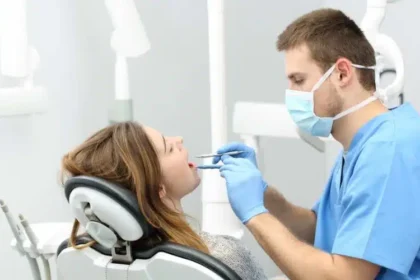Post-traumatic stress disorder (PTSD) is a mental health condition that some people develop after experiencing or witnessing a shocking, scary, or dangerous event. For individuals with PTSD, stress and fear may continue long after the danger has passed. Symptoms may include flashbacks, nightmares, and severe anxiety, as well as uncontrollable thoughts about the event. Here is more information about effective treatments for this condition:
Psychotherapy
Psychotherapy, also known as talk therapy, is a typical approach for addressing PTSD. A mental health professional helps you develop skills to manage your symptoms and improve your overall functioning. Several types of psychotherapy are tailored for trauma. Other forms of psychotherapy may also exist. Finding a therapist trained in trauma-focused therapies provides a structured path for working through the experience.
Medications
In addition to psychotherapy, certain medications are used to manage PTSD symptoms. These are typically prescribed by a psychiatrist or other medical doctor when a person is unable to control their symptoms on their own. A conventional type of medication you may encounter is antidepressants.
Selective serotonin reuptake inhibitors (SSRIs) are a class of antidepressants that are used for PTSD. They are typically used to improve mood and reduce feelings of anxiety, but may not be ideal for every individual. Other antidepressants might be prescribed based on an individual’s specific needs. A doctor will work with you to find a suitable medication and dosage, monitoring for any side effects and adjusting the treatment plan as needed.
IV Ketamine Therapy
When conventional methods for PTSD do not provide sufficient relief, other treatments are available. IV ketamine therapy is one such option that has shown potential for individuals with treatment-resistant conditions. Administered in a controlled clinical setting, this therapy involves receiving a low dose of ketamine through an intravenous infusion.
The process is typically overseen by medical professionals who monitor you throughout the session. Unlike traditional antidepressants that may take weeks to show effects, some people experience changes in their symptoms more quickly with ketamine. The treatment protocol usually consists of a series of infusions over several weeks. A thorough evaluation by a qualified provider determines if this treatment is a suitable option for your specific circumstances.
While ketamine treatment shows promise, it may be more effective as part of a comprehensive mental health plan. Combining ketamine therapy with counseling or other therapeutic approaches can help maximize its benefits. It’s also important to discuss potential side effects and risks, such as nausea or increased blood pressure, with your provider before beginning treatment.
Get Treated for PTSD
Living with PTSD symptoms can be difficult, but there are options available. A range of treatments is available, from established psychotherapies and medications to newer options for those who have not found relief with traditional approaches. Taking the step to explore these treatments is a move toward managing your symptoms and improving your quality of life. If you are struggling with the effects of trauma, reach out to a healthcare provider today to discuss a treatment plan that is right for you.









